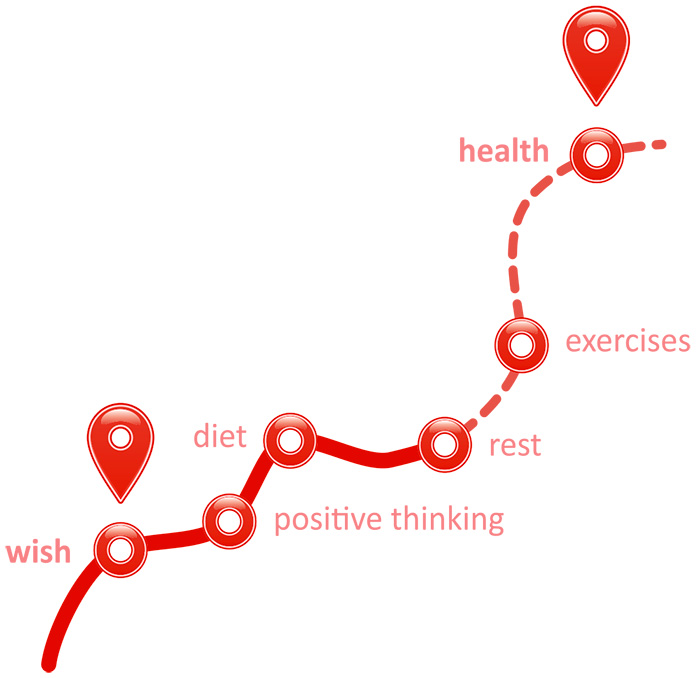
A scheduled visit with a physician seems to be set on a timer. The doctor, who might not even bother to sit down, asks a few perfunctory questions, makes a quick diagnosis and tells the patient to see a nurse for a prescription. Then the doctor is off to the next patient.
Physicians spend about seven minutes with each patient, on average. That time crunch is not only putting a strain on doctor-patient relationships, but it is also among the factors helping create job opportunities in the growing field of health coaching. Health coaches act as mentors, motivating their clients to make better decisions in their diet and exercise routines and assisting with stress reduction, all of which can lead to better health and fewer doctor visits.

"The coaching industry has seen tremendous growth during the last seven or eight years," says Dr. Diana Hoppe, founder of Amazing Over 40, Inc., a health coaching certification program for women. "Health coaches can devote more time to people than doctors are usually able to, building a relationship that leads to changes in behavior that can prevent diabetes and other chronic conditions."
Health coaches can come from any background. They sometimes work in doctors' offices or clinics, but they can also be found in corporate sites, community venues or working from home. Sometimes sessions with clients are held over the phone.
"It's a profession that comes with a lot of flexibility," Hoppe says. "You can work full-time or part-time and decide how you want the job to fit into your overall lifestyle."
There are no specific educational requirements to become a health coach, and many coaches have not taken classes to become a coach—but training through online certification programs such as Hoppe's is available. The training typically takes about 60 to 90 days, and the budding health coaches learn about topics such as fitness plans, the science behind healthy foods and how to design a health program for a client.
"The growth in health coaching is part of the growth in the overall field of life coaching. It is an especially appealing career opportunity for people above age 40 who have faced age discrimination since the recession and have grown weary of being rejected by hiring managers," says Ariela Wilcox, president of The Wilcox Agency.
Wilcox is a literary agent, but her agency also has a business-model licensing division. She helps doctors and other professionals set up their own health coaching networks. She assisted Hoppe in establishing hers.
"Thirty years ago there was no such thing as a life coach," Wilcox says. "Today it's a huge profession. The most recent figures are from 2012, and life coaching was a $700 million business in the United States that year, and nearly $2 billion worldwide."
Hoppe and Wilcox say there are several reasons that this is a crucial time for the health coaching industry. (See box below.) Wilcox began tracking the rise in coaching—especially health coaching—a number of years ago.
"Health coaching has risen 38 percent in the last few years," Wilcox says. "With the turn toward preventive medicine to cut health costs, as well as the push to address obesity, health coaches will be in an excellent position to create their own health coaching business or get a job in a clinic, hospital or corporate setting."
The average annual salary for all types of coaches is $47,900, according to the International Coach Federation. In the U.S., full-time coaches make an average of $83,000, and part-time coaches average about $26,000 a year.
The financial advantages for the health coach are clear, but the benefits are also great for the clients and their employers, Wilcox says.
"If people are healthier, that can lower the insurance costs for their employers," she says. "With some companies, you can get a bonus at work or pay less for insurance. That is like giving yourself a raise."
Hoppe expects the demand for health coaches to continue to grow, especially among women.
"Women are living longer and searching for ways to take better care of themselves from a preventive and nutritional standpoint," she says. "Health coaches will provide them the education and accountability they need to achieve their health goals."
Health Coaching On the Rise
- Insurance companies are forcing companies and corporations toward more preventive health care for serious medical conditions, including diabetes, obesity and hypertension.
- Medicare now pays physicians for overseeing weight loss and other conditions in obese patients. Medicare has also been phasing in a plan that links a portion of doctors' pay to their performance. That plan will be completely phased in by 2017, making the need for health coaches even more important.
- There are around 70 million baby boomers in the U.S., with 10,000 turning 65 every day. Many of these baby boomers are willing to employ health coaches to improve their health and wellness.
